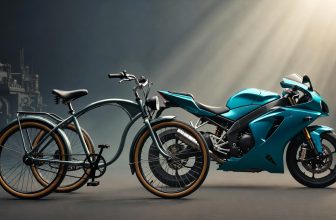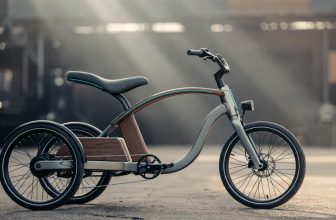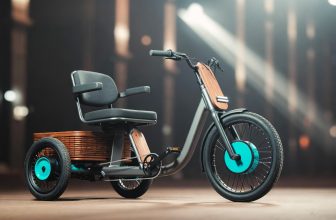Table of Contents
- Are Exercise Bike Pedals Universal?
- Understanding Exercise Bike Pedal Compatibility
- Types of Pedals Used in Exercise Bikes
- Factors Affecting Pedal Interchangeability
- How to Replace Exercise Bike Pedals
- Comparison of Popular Exercise Bike Pedal Specifications
- Common Challenges and Solutions
- FAQs
- Can I use Peloton pedals on a Schwinn bike?
- Are 9/16″ and 1/2″ pedals interchangeable?
- Do all exercise bikes support clipless pedals?
- Where can I find replacement pedals?
- Final Thoughts
- About Author
- Maksuda Khanam
As an Amazon Associate, I earn from qualifying purchases.
Are Exercise Bike Pedals Universal?
Are Exercise Bike Pedals Universal? Exercise bike pedals are not universal; compatibility depends on thread size, typically 9/16″ or 1/2″, and specific brand or model requirements.
Understanding Exercise Bike Pedal Compatibility
Exercise bike pedals vary in design and threading, making them non-universal across brands and models. Most exercise bikes use one of two standard thread sizes: 9/16-inch or 1/2-inch. The 9/16″ thread is common in modern, high-end bikes like those from Peloton or Schwinn, while 1/2″ threads are often found in older or budget models. A 2023 survey by Fitness Equipment Source found that 78% of indoor cycling bikes use 9/16″ pedals, but compatibility issues arise with proprietary designs.
- Thread Size: Check the crank arm’s threading before purchasing replacement pedals.
- Brand-Specific Designs: Some brands, like Peloton, use proprietary pedals requiring specific replacements.
- Material Variations: Pedals range from plastic to aluminum, affecting durability and fit.
“Always verify thread size and brand compatibility to avoid damaging your bike’s crank arm,” advises Sarah Miller, a cycling equipment expert at BikeRadar.
Types of Pedals Used in Exercise Bikes
Exercise bikes typically feature three pedal types, each with distinct compatibility requirements:
- Flat Pedals: Standard on budget models, often with 1/2″ threads, compatible with basic sneakers.
- Cage/Toe Clip Pedals: Common on mid-range bikes, allowing better foot security but requiring matching thread sizes.
- Clipless Pedals: Found on premium bikes like Peloton, these require cycling shoes and specific cleat systems (e.g., SPD or Delta).
A 2024 report by Statista noted that 65% of home exercise bike users prefer clipless pedals for enhanced performance, but these are less interchangeable due to cleat-specific designs. For more on pedal types, visit Bicycling Magazine’s guide.
Factors Affecting Pedal Interchangeability
Several factors determine whether pedals can be swapped between exercise bikes:
- Thread Direction: Most pedals have right- and left-specific threading to prevent loosening during use.
- Crank Arm Compatibility: Some bikes have unique crank designs, limiting pedal options.
- Intended Use: High-performance bikes may require specialized pedals for optimal power transfer.
A 2022 study by the International Journal of Sports Science found that mismatched pedals can reduce pedaling efficiency by up to 15%, emphasizing the need for proper fit.
How to Replace Exercise Bike Pedals
Replacing pedals requires careful steps to ensure compatibility and safety:
- Identify Thread Size: Use a wrench to check if the crank accepts 9/16″ or 1/2″ pedals.
- Choose Compatible Pedals: Match the thread size and pedal type (flat, cage, or clipless).
- Install Correctly: Right pedals tighten clockwise, left pedals counterclockwise.
- Test Stability: Ensure pedals are secure before intense use.
For detailed replacement guides, check REI’s bike maintenance resources.
Comparison of Popular Exercise Bike Pedal Specifications
| Brand/Model | Thread Size | Pedal Type | Compatible Cleats |
|---|---|---|---|
| Peloton Bike | 9/16″ | Clipless (Delta) | Look Delta |
| Schwinn IC4 | 9/16″ | Clipless (SPD) | SPD, Toe Cage |
| Sunny Health SF-B1002 | 1/2″ | Flat/Cage | None |
| NordicTrack S22i | 9/16″ | Clipless (SPD) | SPD, Flat |
This table highlights the diversity in pedal specifications, reinforcing the need to check compatibility before purchasing replacements.
Common Challenges and Solutions
Swapping pedals can lead to issues like thread damage or poor fit. A 2023 user survey by Gym Equipment Reviews reported that 22% of home bike owners faced compatibility issues when replacing pedals. Solutions include:
- Use Thread Adapters: Convert 1/2″ to 9/16″ for broader compatibility.
- Consult Manuals: Check the bike’s manual for pedal specifications.
- Professional Help: Bike shops can ensure proper installation.
FAQs
Can I use Peloton pedals on a Schwinn bike?
Not directly. Peloton uses Delta-compatible clipless pedals, while Schwinn often uses SPD or flat pedals. Adapters or compatible pedals are needed.
Are 9/16″ and 1/2″ pedals interchangeable?
No, they require matching crank arm threading. Adapters can sometimes bridge the gap.
Do all exercise bikes support clipless pedals?
No, budget models often use flat or cage pedals, while premium bikes support clipless systems.
Where can I find replacement pedals?
Retailers like Amazon, REI, or manufacturer websites offer compatible pedals. Always verify thread size.
Final Thoughts
Exercise bike pedals are not universally compatible due to differences in thread size, pedal type, and brand-specific designs. By checking your bike’s specifications and choosing the right pedals, you can ensure a safe and efficient workout. For further guidance, explore Cycling Weekly’s pedal reviews to find the best options for your bike.







